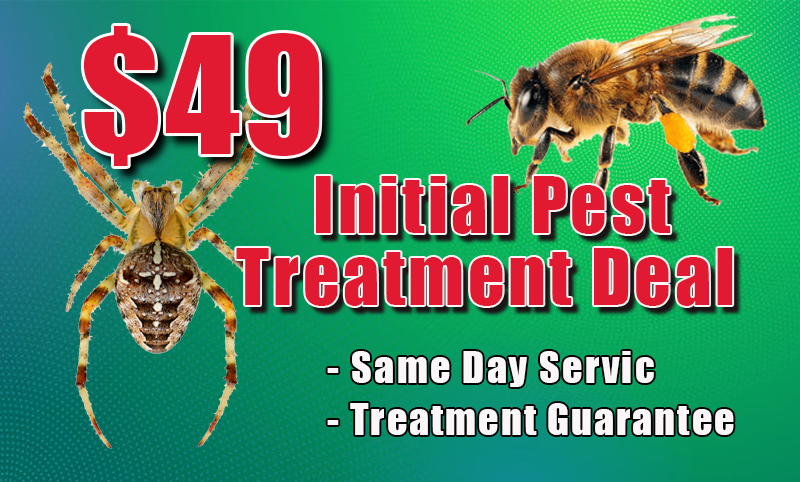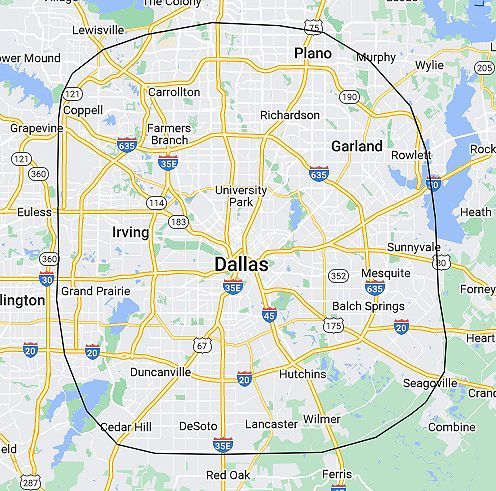Tick Extermination
$49 Initial Pest Control Deal
Same Day Pest Control
469-457-3658
Choose us for Professional Pest Control
🕷
Same Or Next Day Pest Control
🕷100% Positive Customer Satisfaction
🕷Guaranteed Pest Control Services
🕷Number 1 Pest Control Company For Emergency Pest Services
🕷All Technicians Are Licensed
🕷Our treatment methods always take into account you, your family, and your pets

Initial Pest Control Deal
$49 Initial Pest Control Service
- Next Day Pest Control Available
- Satisfaction Guaranteed!
- We provide outstanding customer service
- Treating your home like it is our own
- We prioritize the health and well-being of our customers in every aspect of our work
Pest Elimination Services Available for Residential and Commercial!
Tick Pest Control
Wood ticks are a type of tick that commonly live in wooded areas and attach themselves to animals and humans. They are also known as American dog ticks. Wood ticks are typically reddish-brown in color and have eight legs. They are larger than other types of ticks, with females growing up to the size of a small grape, while males are smaller.
Wood ticks are known to carry various diseases, such as Rocky Mountain spotted fever, tularemia, and tick paralysis. Therefore, it is important to take precautions when spending time in wooded areas and to check yourself and your pets for ticks after being outdoors. If you find a tick attached to your skin, it is recommended to remove it promptly using tweezers and to clean the bite area with soap and water. If you need a tick exterminator, call us today
Same Day Pest Control
469-457-3658
What do ticks eat?
Ticks are parasitic arachnids that feed on the blood of their hosts, which can include mammals, birds, and reptiles. Ticks use their sharp mouthparts to pierce the skin of their host and feed on their blood.
Ticks have a complex life cycle that involves several stages, during which they may feed on different hosts. After hatching from eggs, tick larvae typically feed on small mammals or birds. As they mature into nymphs, they may feed on larger animals, such as deer, before becoming adult ticks.
Adult ticks are the most likely to feed on humans, dogs, and other large mammals. They may attach themselves to their host for several days or even weeks, depending on the species of tick and the availability of blood. During this time, ticks can transmit diseases such as Lyme disease, Rocky Mountain spotted fever, and ehrlichiosis.
Ticks do not eat in the traditional sense, as they obtain all the nutrients they need from their blood meals. After feeding, ticks can go for long periods without feeding again, sometimes up to a year or more, depending on the species and life stage.
About Deer Ticks
Deer ticks, also known as blacklegged ticks, are a type of tick that are primarily found in wooded and grassy areas in North America. They are called deer ticks because they often feed on the blood of deer during the adult stage of their life cycle.
Deer ticks are small, typically about the size of a poppy seed or a pencil tip. They have a distinctive appearance, with a reddish-brown body and black legs. Like other ticks, they feed on the blood of their host by attaching themselves to the skin with their mouthparts.
Deer ticks are known to transmit several diseases, including Lyme disease, anaplasmosis, and babesiosis. These diseases can be serious and may cause a range of symptoms, including fever, headache, muscle aches, and a characteristic rash. It's important to take precautions when spending time in areas where deer ticks are common, such as wearing long sleeves and pants, using tick repellent, and checking yourself and your pets for ticks after spending time outdoors. If you find a deer tick attached to your skin, it's important to remove it promptly using tweezers and to clean the bite area with soap and water.
How do I get rid of ticks?
To get rid of ticks, you can take several steps:
- Wear protective clothing: When spending time outdoors in areas where ticks are common, it's important to wear long sleeves and pants, and to tuck your pants into your socks to prevent ticks from crawling up your legs.
- Use tick repellent: Applying a tick repellent containing DEET, picaridin, or permethrin to your skin and clothing can help repel ticks and reduce the risk of tick bites.
- Check yourself and your pets for ticks: After spending time outdoors, check yourself, your children, and your pets for ticks. Pay particular attention to areas such as the scalp, behind the ears, and in the armpits and groin area.
- Remove ticks promptly: If you find a tick attached to your skin, it's important to remove it promptly using tweezers. Grasp the tick as close to the skin as possible and pull it straight out with a steady, even pressure. Avoid twisting or jerking the tick, as this can cause its mouthparts to break off and remain in the skin.
- Dispose of ticks properly: After removing a tick, dispose of it in a sealed container or flush it down the toilet. Do not crush the tick with your fingers, as this can increase the risk of infection.
- If ticks are a problem in your yard or on your pets, you may want to consider having your yard treated with insecticides by hiring a professional exterminator.
- Remember that ticks can carry diseases, so it's important to take precautions and seek medical attention if you experience symptoms of a tick-borne illness, such as fever, headache, or a rash.
Tick Control Near Me in Dallas, TX

Serving Dallas Texas and
Surrounding areas
Hebron
Plano
Carrollton
Coppell
Addison
Richardson
Farmers Branch
Garland
University Park
Rowlett
Highland Park
Roes Hill
Irving
Oak Lawn
Sunnyvale
Dallas
Grand Prairie
Cockrell Hill
Mesquite
Mountain Creek
Oak Cliff
Balch Springs
Redbird
Wolf Creek
Lawson
Duncanville
Hutchins
Sand Beach
Seagoville
Cedar Hill
DeSoto
Lancaster
Wilmer
Glenn Heights
Same Day Pest Control
469-457-3658
